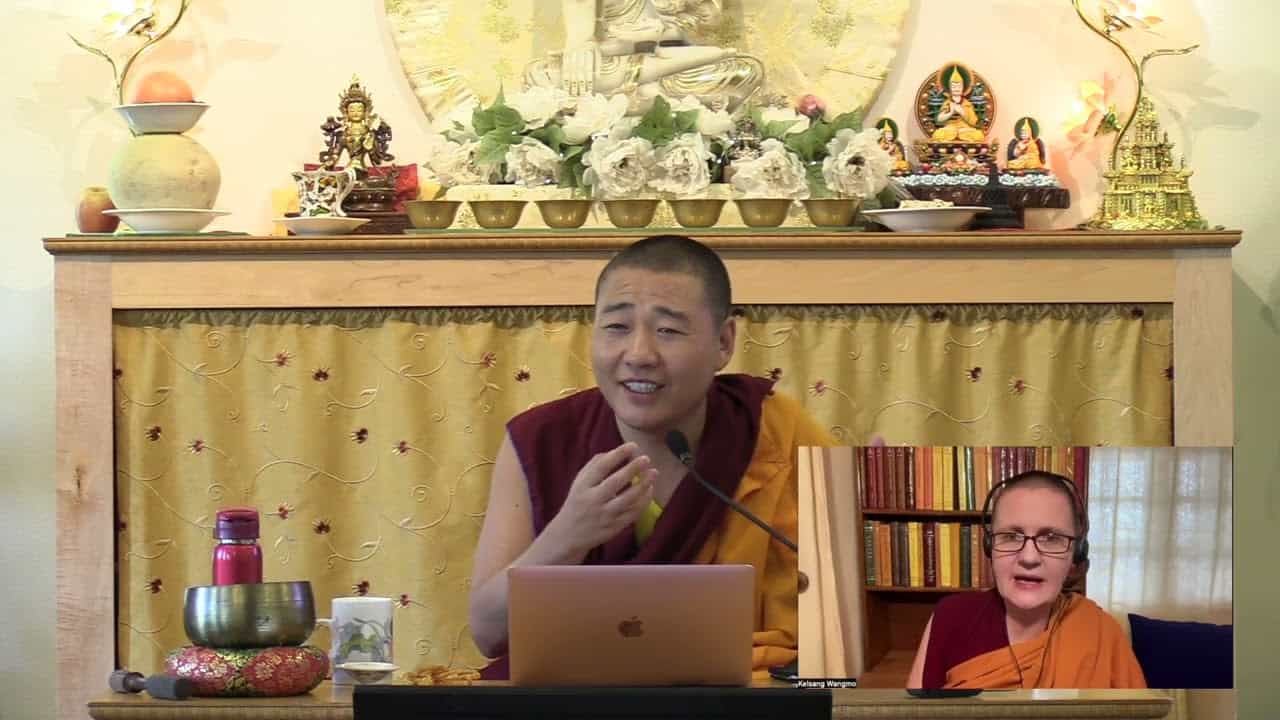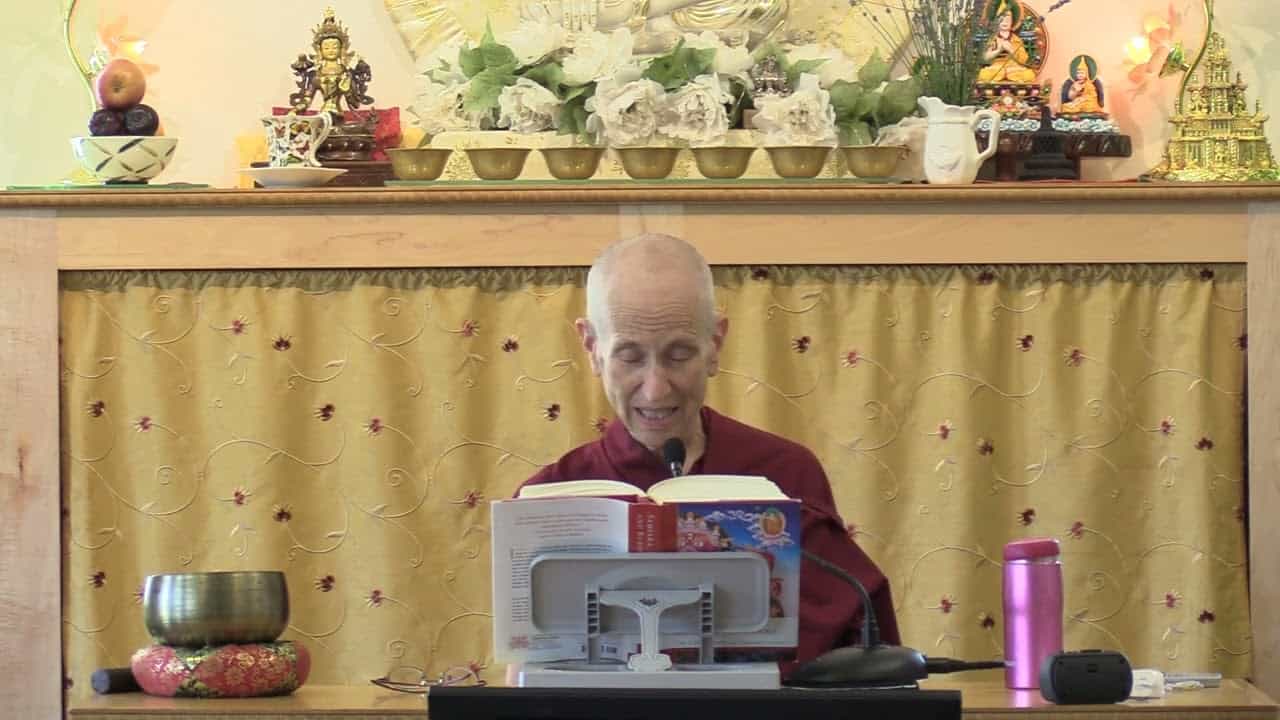Ten powers
12 Following in the Buddha's Footsteps
Part of an ongoing series of teachings based on the book Following in the Buddha's Footsteps, the fourth volume in The Library of Wisdom and Compassion series by His Holiness the Dalai Lama and Venerable Thubten Chodron.
- Understands the world with many different elements
- 18 constituents, 6 elements, external and internal sense sources, 12 links of dependent origination
- Impermanent, conditioned, dependent
- Understands how beings have different inclinations
- Inferior and superior inclinations
- Understands dispositions of the faculties of other beings
- Faith, effort, mindfulness, concentration, wisdom
- Understands defilement, cleansing and emergence related to meditative stabilizations
- Recollects his manifold past lives
12 Ten Powers (download)
Contemplation points
- Consider some of the intricacies of karma – not just the substantial cause for what we experience, but the many conditions coming together that allow for a result to ripen. Make some examples of this from your own life. Get a feel for how much influences what we experience from moment to moment and how being able to see this for each living being enables a Buddha to be of benefit.
- Consider the next five of the Ten Powers. What insights does each power provide? How does that power enable the Buddha to benefit others?
- The fourth of the Ten Powers is that the Buddha understands it actually is the world with its many and different elements.
- The fifth of the Ten Powers is that he understands as it actually is how beings have different inclinations.
- The sixth of the Ten Powers is that he understands as it actually is the disposition of the faculties of other beings. How does this power enable the Buddha to benefit others?
- The seventh of the Ten Powers is that he understands as it actually is the defilement, cleansing, and emergence in regard to the meditative stabilizations, liberations, concentrations, and meditative absorptions.
- The eighth of the Ten Powers is that he recollects his manifold past lives.
Venerable Thubten Chodron
Venerable Chodron emphasizes the practical application of Buddha’s teachings in our daily lives and is especially skilled at explaining them in ways easily understood and practiced by Westerners. She is well known for her warm, humorous, and lucid teachings. She was ordained as a Buddhist nun in 1977 by Kyabje Ling Rinpoche in Dharamsala, India, and in 1986 she received bhikshuni (full) ordination in Taiwan. Read her full bio.


